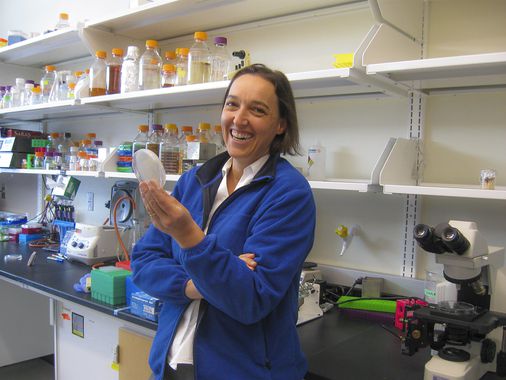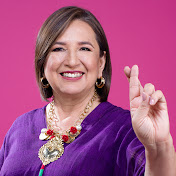Dr. Amon, who lived in Andover, was the Kathleen and Curtis Marble Professor in Cancer Research at the Massachusetts Institute of Technology, and a member of MIT’s Koch Institute for Integrative Cancer Research.
She was “a force of nature,” said Koch Institute director Tyler Jacks, for an MIT tribute.
“Her intellect and wit were equally sharp, and she brought unmatched passion to everything she did,” Jacks said. “Through her groundbreaking research, her mentorship of so many, her teaching, and a host of other contributions, Angelika has made an incredible impact on the world — one that will last long into the future.”
The mother of two daughters, and an advocate for increasing diversity among researchers, Dr. Amon called for changes that would make the work-life balance easier for parents to navigate.
“In my personal experience, raising the number of women in science at a particular institution and putting them into prominent positions makes it seem ‘normal,’ ” she told Guy Riddihough for an interview posted on the Cold Spring Harbor Symposia on Quantitative Biology website.
“That’s what I want to see: to not be the odd peacock out, the token woman who speaks at a meeting,” she added. “If half the speakers are women, after two years people won’t blink an eye anymore.”
In MIT’s tribute, Ruth Lehmann, director of the Whitehead Institute, called Dr. Amon “an inspiring leader not only by her trailblazing science but also by her fearlessness to call out sexism and other -isms in our community. Her captivating laugh and unwavering mentorship and guidance will be missed by students and faculty alike. MIT and the science community have lost an exemplary leader, mentor, friend, and mensch.”
Dr. Amon devoted a significant part of her career to studying the errors that can occur when cells divide, which can lead to an increase or decrease in chromosomes. The condition of having an abnormal number is known as aneuploidy.
Certain extra copies of chromosomes can cause Down syndrome or developmental disorders, while others are fatal.
“In humans, aneuploidy is strongly correlated with the development of cancer, but the causative mechanism has been elusive,” according to the Breakthrough Prize website. “Professor Amon showed that a primary mechanism is the raising of stress levels in the cell; that this tends to lead, unexpectedly, to slower proliferation of cancer; but that ultimately aneuploidy can help the cancer to spread through the body, because genes in its extra chromosomes equip it to flourish in these new areas.”
When she received the award, Dr. Amon said that “making a discovery is the best feeling in the world. It’s like Christmas when you were 5. The beauty of experimental science is that these eureka moments are often shared with other scientists, and I’m privileged to have experienced this.”
Dr. Amon, who was a member of the National Academy of Sciences and the American Academy of Arts and Sciences, added that she shared “this tremendous honor with the many wonderful students and post-docs that I was fortunate to have worked with, and my family, who supported me in my endeavor to seek the truth.”
Angelika Amon was born in Vienna in 1967 and grew up in Austria, a daughter of Helmut Amon, an opera singer, and Ingeborg Fries.
The oldest of four siblings, she did her undergraduate studies in biology at the University of Vienna, from which she received a master’s degree and a doctorate.
After finishing her doctorate, she went to MIT to work in Lehmann’s lab. Dr. Amon subsequently joined MIT’s faculty and became a full professor in 2007.
She was associate director of MIT’s Paul F. Glenn Center for Biology of Aging Research, a member of the Ludwig Center for Molecular Oncology at MIT, and an investigator for the Howard Hughes Medical Institute.
In 1994, just before moving to the United States, she married Johannes Weis, whom she had known since they were teenagers.
“She is literally the best thing that happened in my life,” he said in an interview after she died. “I feel so blessed by knowing her for 40 years.”
A software developer for Amazon, he credited her with encouraging him to finish his own graduate studies.
And their two daughters, he added, “were her biggest love in her life. She was so proud of them.”
“She had a huge impact on my life both professionally and as a mother,” said Dr. Amon’s older daughter, Theresa Weis of Somerville, who finished a bachelor’s degree in biology at Brandeis University and is applying to MD/PhD programs.
Dr. Amon often brought her daughters to her lab, where her students were an extended family. “Her network became mine,” Theresa said, “and that was really powerful, trying to pursue a career in a field that’s often difficult for women.”
Clara Weis, Dr. Amon’s younger daughter, recalled that she “was the rock around here. She held us all together.”
She added that her mother “was pretty much the best role model there is. She was very caring and understanding. She always knew what was happening and how to deal with it the right way.”
A celebration of life will be announced next year for Dr. Amon, who in addition to her husband, daughters, and mother leaves two sisters, Amelia of Haywards Heath, England, and Arabella of Vienna, and a brother, Anatol of Vienna.
Dr. Amon’s list of important awards stretches back to her mid-30s.
Among her honors were the 2003 National Science Foundation Alan T. Waterman Award, the 2007 Paul Marks Prize for Cancer Research, the 2008 National Academy of Sciences Award in Molecular Biology, the 2013 Ernst Jung Prize for Medicine, the 2019 Vilcek Prize in Biomedical Science, and this year’s Human Frontier Science Program Nakasone Award.
The Carnegie Corporation of New York named Dr. Amon to its annual list of Great Immigrants, Great Americans.
Dr. Amon also was on the board of the Rosalind Franklin Society, which recognizes contributions of women in the life sciences, and had received honors awards for women in science, such as the 2018 Vanderbilt Prize and the 2015 Women in Cell Biology Senior Award.
During a career that she said was driven by curiosity, she called for increasing “the presence of underrepresented minorities, of women” in the ranks of researchers and professors.
“My personal opinion is that it’s important to conscientiously increase the presence of women in science at every level, especially at the level of professor and team leader,” she said in the Cold Spring Harbor interview. “I’m a firm believer in affirmative action. It works.”
Bryan Marquard can be reached at bryan.marquard@globe.com.
This content was originally published here.
EL 2 DE JUNIO DEL 2024 VOTA PARA MANTENER
TU LIBERTAD, LA DEMOCRACIA Y EL RESPETO A LA CONSTITUCIÓN.
VOTA POR XÓCHITL













Comentarios